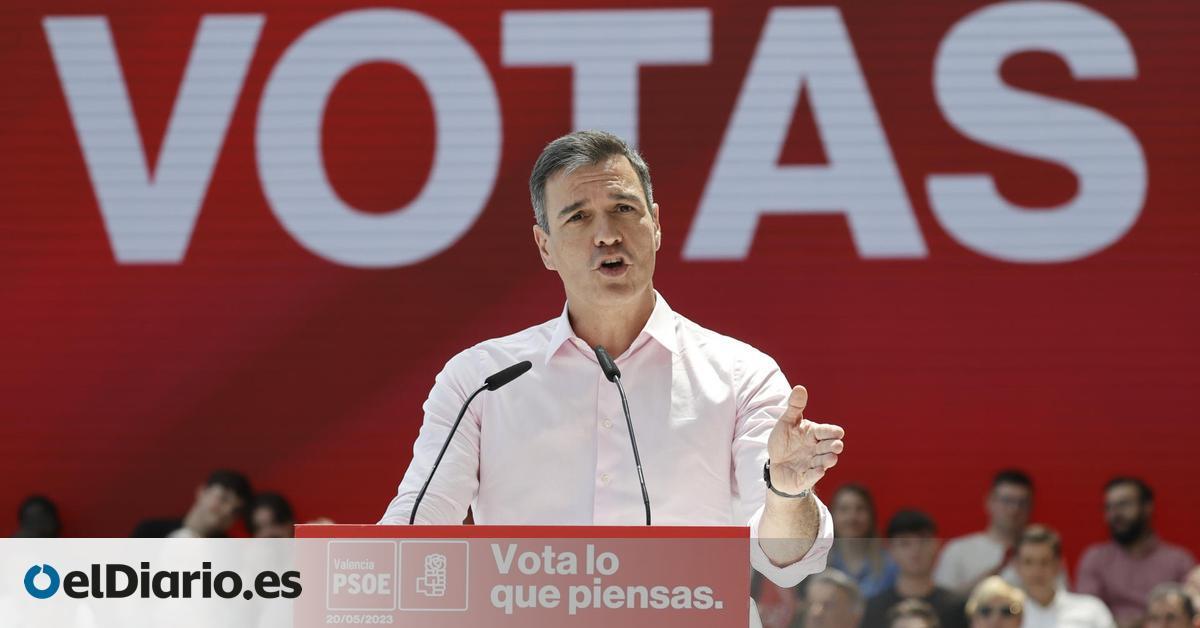
The President of the Government, Pedro Sánchez, announced this Saturday that the Executive will approve this week the largest investment in Primary Care to date, worth 580 million euros. The Sánchez government thus responds to the crisis of one of the pillars of the public health system, especially affected by the cuts during the last economic crisis, the lack of personnel and the impact of the pandemic.
Rural medicine professionals warn of the critical state of primary care: “The population is neglected”
Further
The Secretary General of the PSOE has defended on this day that despite the fact that Health is the responsibility of the Autonomous Communities, “it is the priority of the Government of Spain”. The latest investment in Primary Care, last September, amounted to 172 million euros.
“What matters next May 28 is public health”, said Sánchez, who has assured that in the regional and municipal elections next week they will vote “between the right to health or the health business”. The president added that “voting for the PSOE is voting for public health.”
Sánchez has assured that the new item will be approved at the next Council of Ministers this Tuesday and that it will serve to improve the infrastructure and equipment of Primary Care. The investment has conditions and the autonomies must allocate those 580 million euros to modernize and improve the more than 13,000 health centers that already exist in the country.
The Government intends that the investment will also serve to finance new physiotherapy, radiodiagnostic and emergency rooms that end the wait, the saturation of health centers or the obligation to travel to others further away from the patients who need them.
Sánchez announced this historic departure during his participation in an electoral act in Valencia, in support of the general secretary of the PSPV, president of the Generalitat Valenciana and candidate for re-election, Ximo Puig, as well as Sandra Gómez, the deputy mayor of Valencia and candidate for the city hall.
During his speech, the president denounced the lack of investment in public health by autonomous communities, such as the Community of Madrid. “The great paradox”, said Sánchez, recalling that it is one of the communities with the highest per capita income in the country, but it is at the bottom of social, health and educational spending, behind Andalusia, Catalonia and Murcia.
“As a consequence, 40% of the Madrid population has private insurance,” said the socialist leader in his defense of a public health system that all citizens can access and so that the health of each citizen does not depend on their power purchasing. “We have to say loud and clear that we don’t want a country where people go into debt to pay for cancer treatment.”
“Now that we have to choose the vote and that some may be thinking about whether it is important to go vote or not next 28M, we have to say yes to them,” Sánchez added. The president has made a strong defense of public health in the face of the cuts ordered by the Government of Mariano Rajoy in 2012.
The Government thus addresses, at the gates of next Sunday’s vote, one of the greatest concerns of citizens, who in recent months have demonstrated in various cities in Spain to denounce the deterioration of the public health system, further aggravated with the closure of local health centers such as those promoted by the government of Isabel Díaz Ayuso in the Community of Madrid.
Other communities such as Galicia and Asturias have also experienced mobilizations promoted by medical associations and strikes since last year that have revealed the deterioration of the public system, both by professionals and citizens.
Sánchez took advantage of his speech this Saturday to recall other measures approved by the Government in the field of health, such as the reestablishment of the National Health System, the elimination of the pharmaceutical co-payment for vulnerable people or the investment of more than 100 million euros in the first mental health plan of our country.
The coalition government has also promoted an expansion of health personnel in recent years, with the hiring of 90,000 professionals, as well as the call for 11,000 MIR positions, which is 40% more than those existing at the beginning of its mandate.
Source: www.eldiario.es

